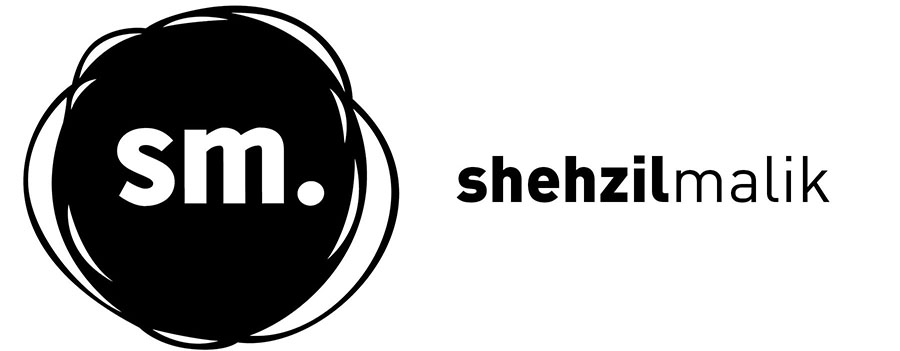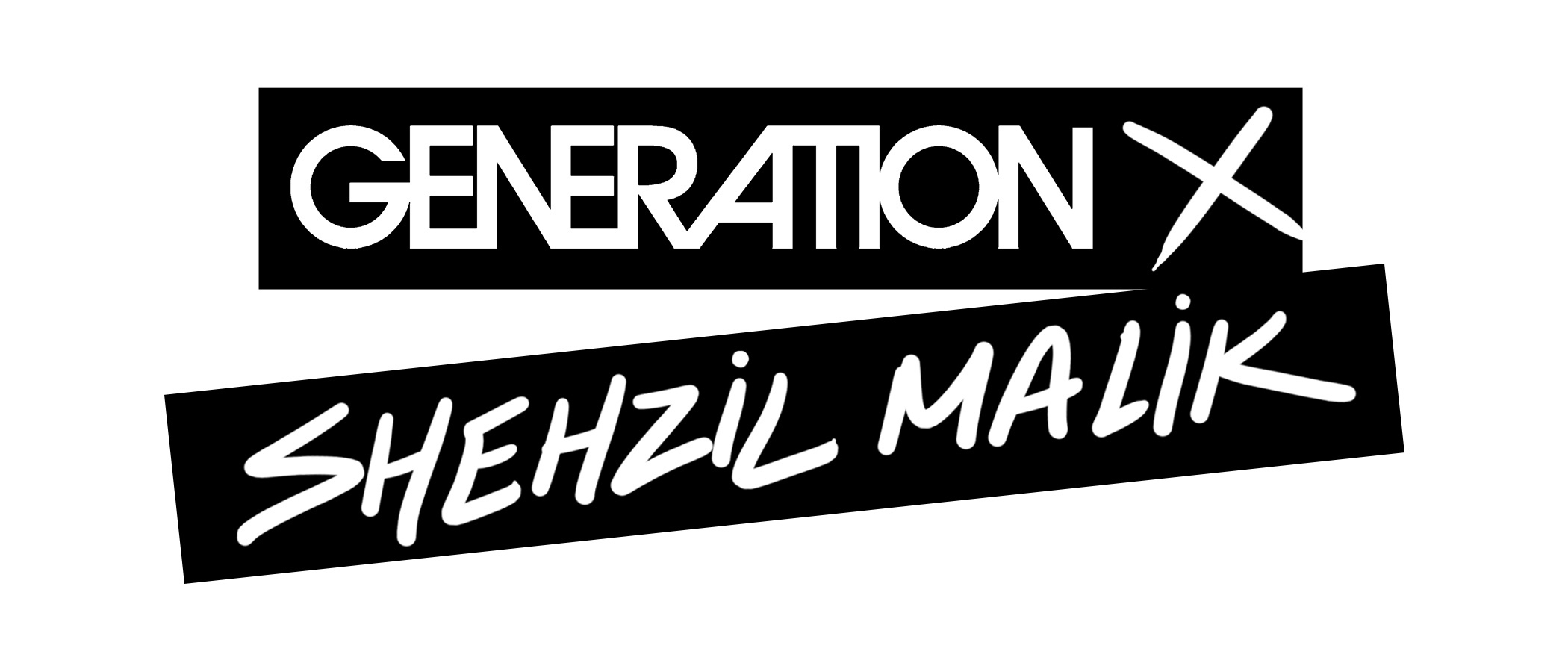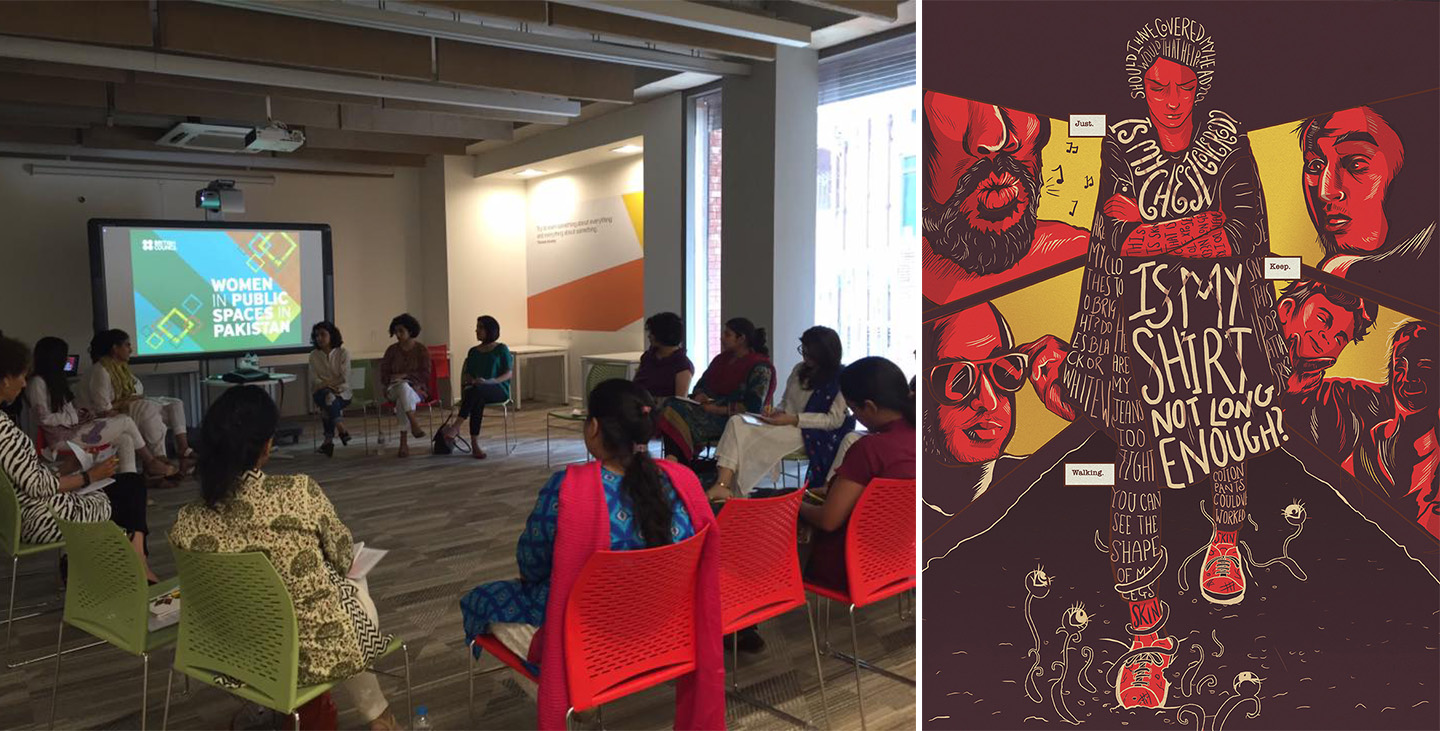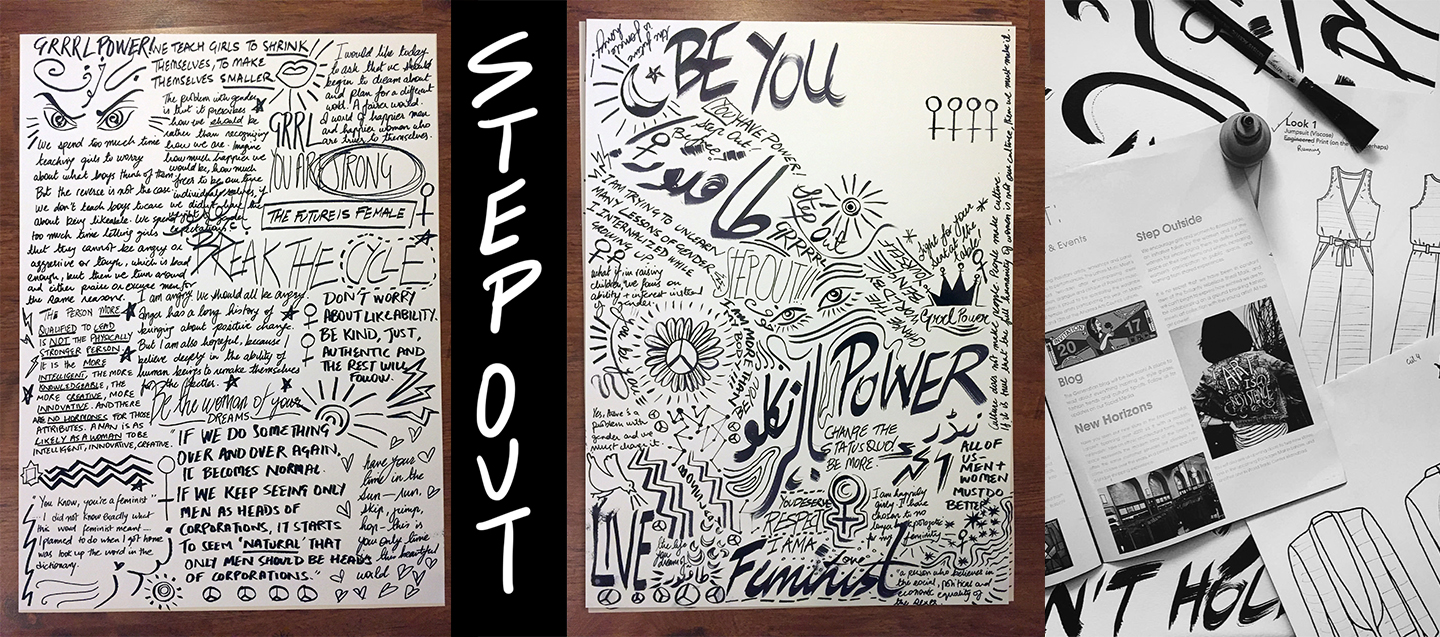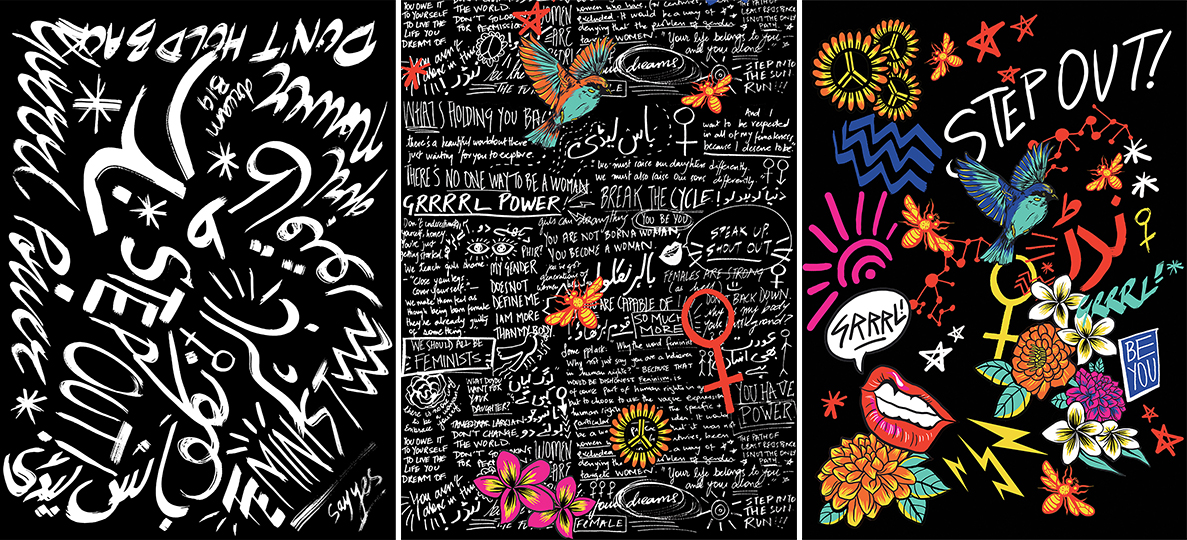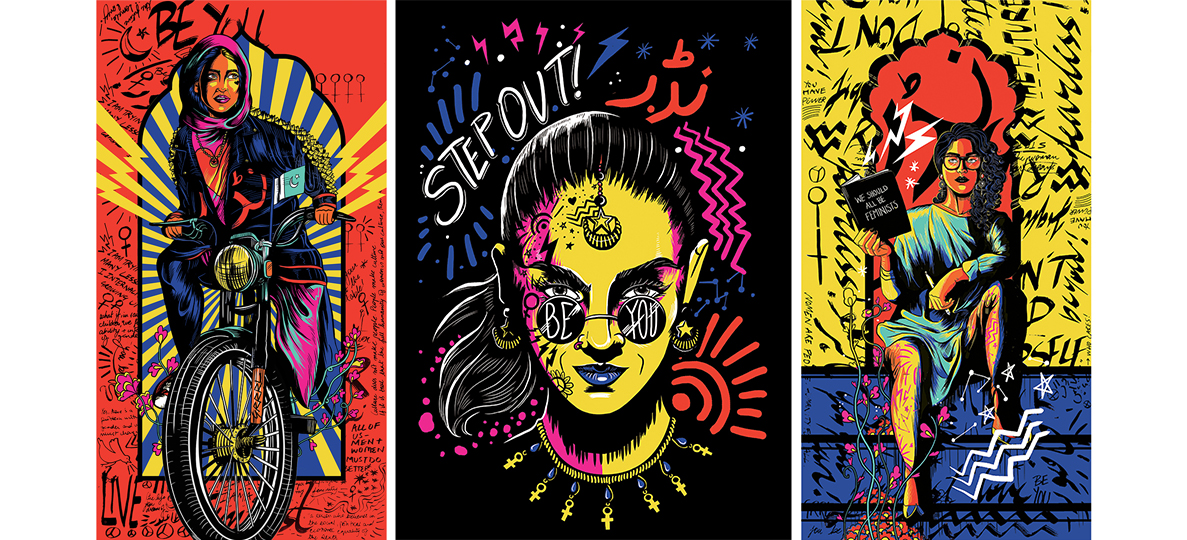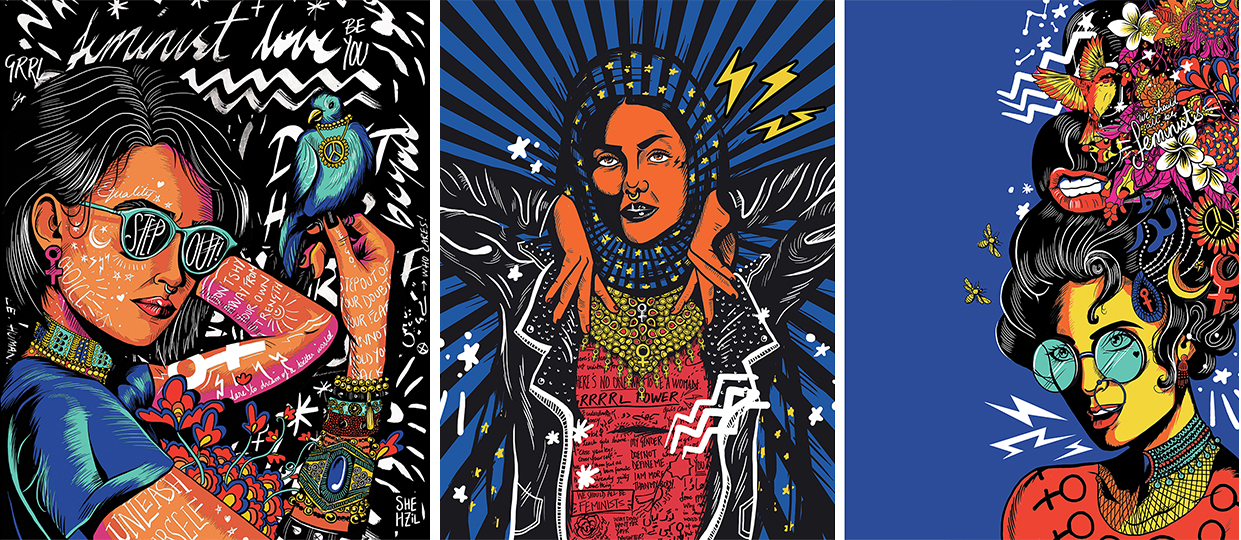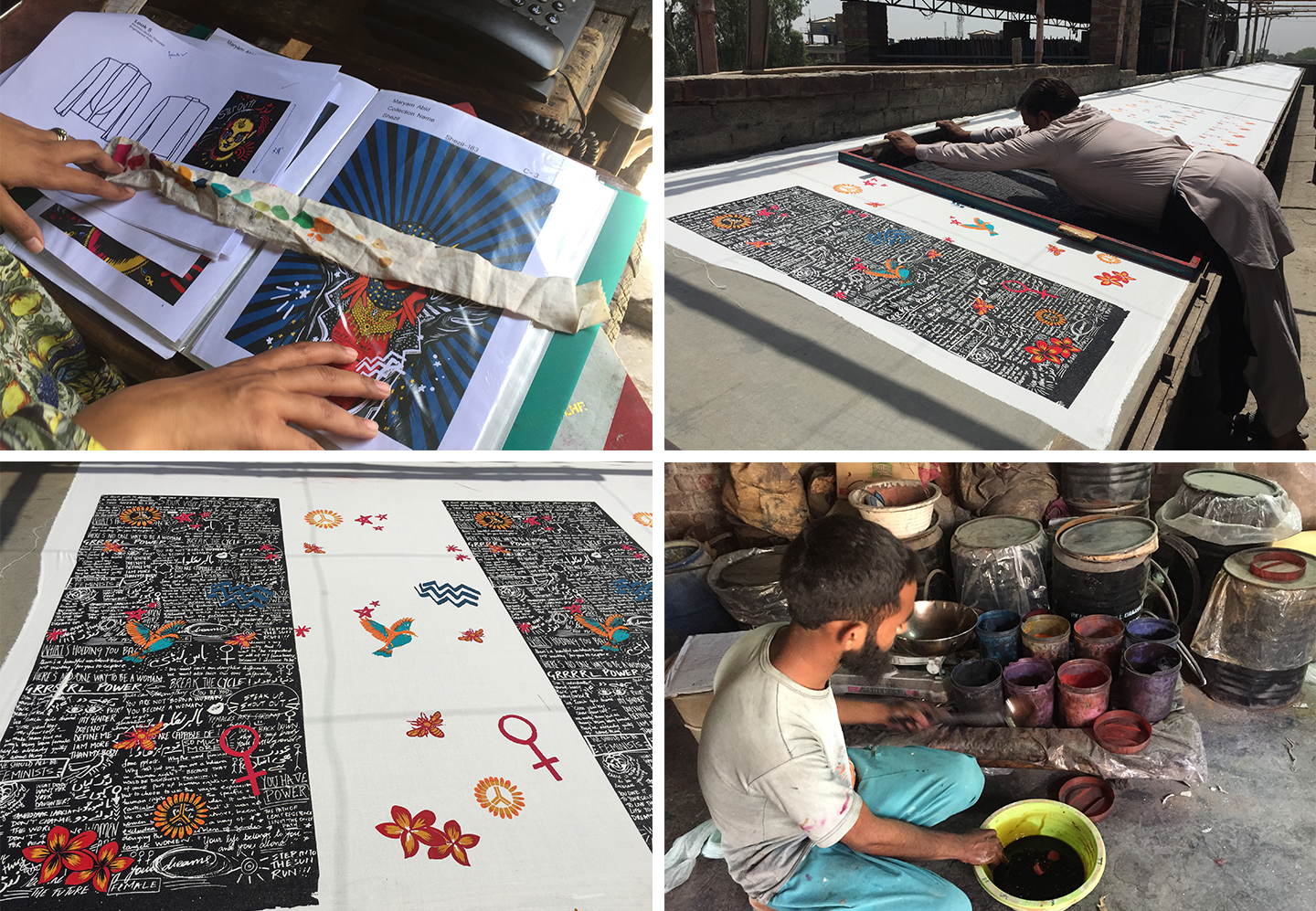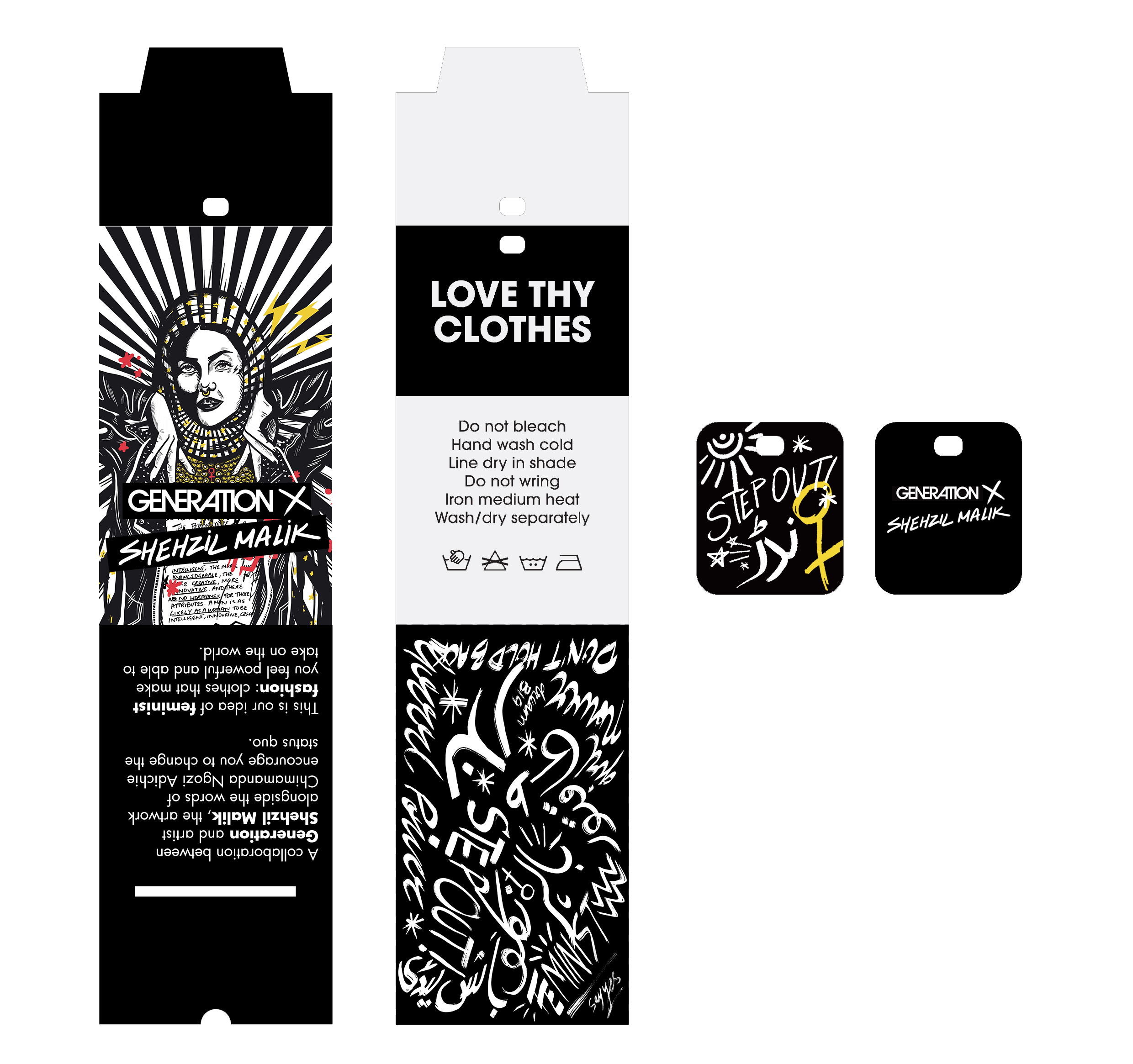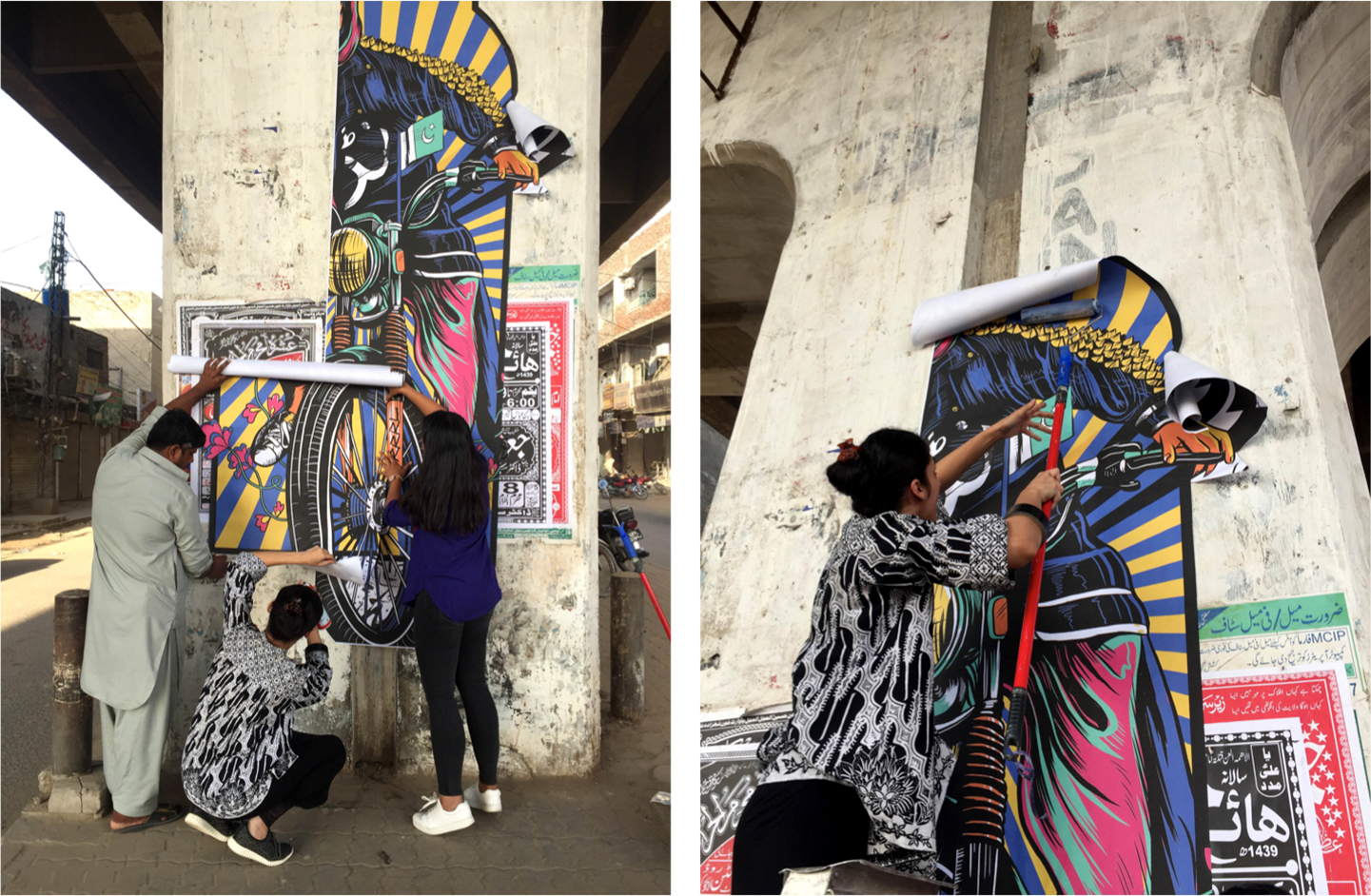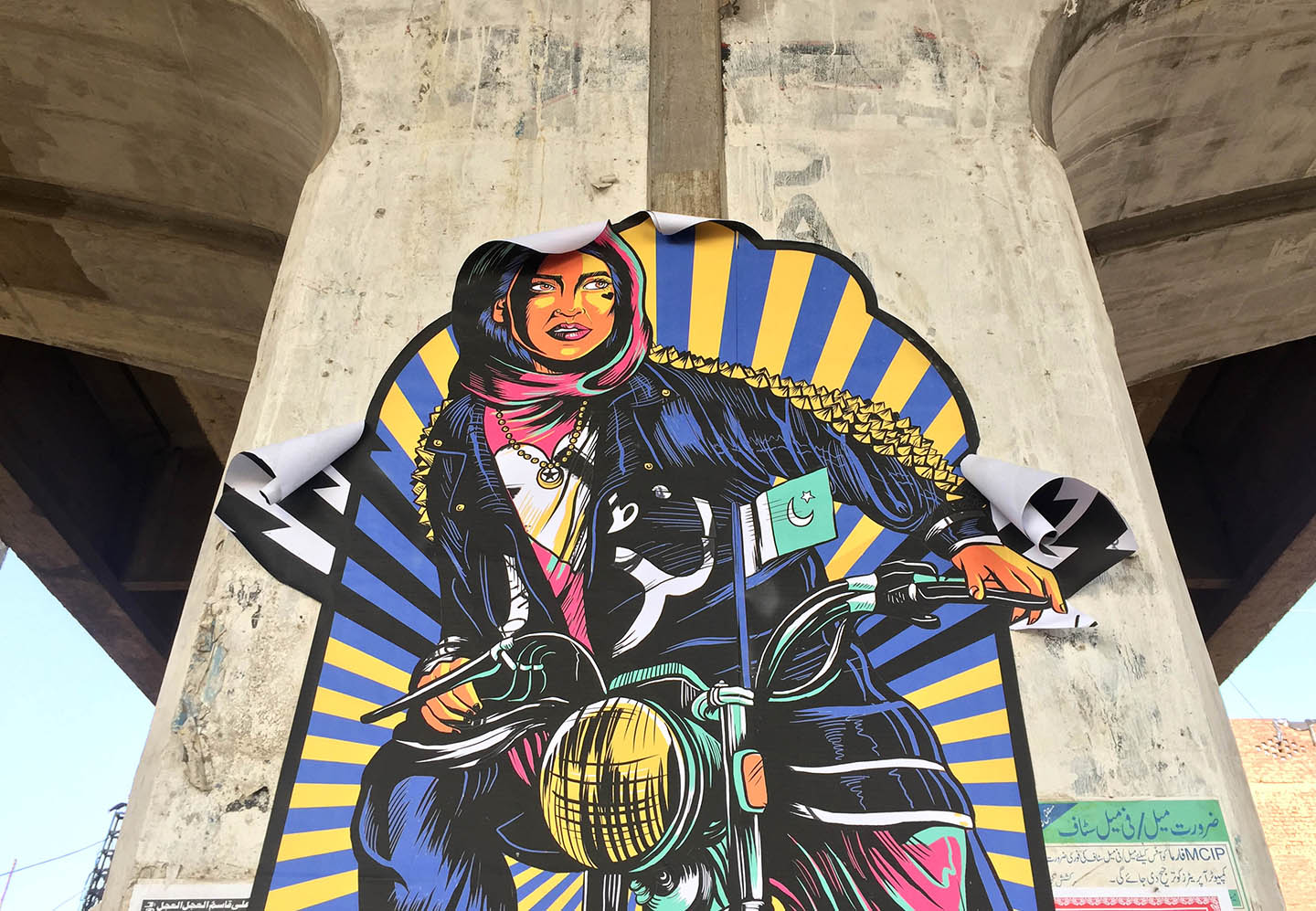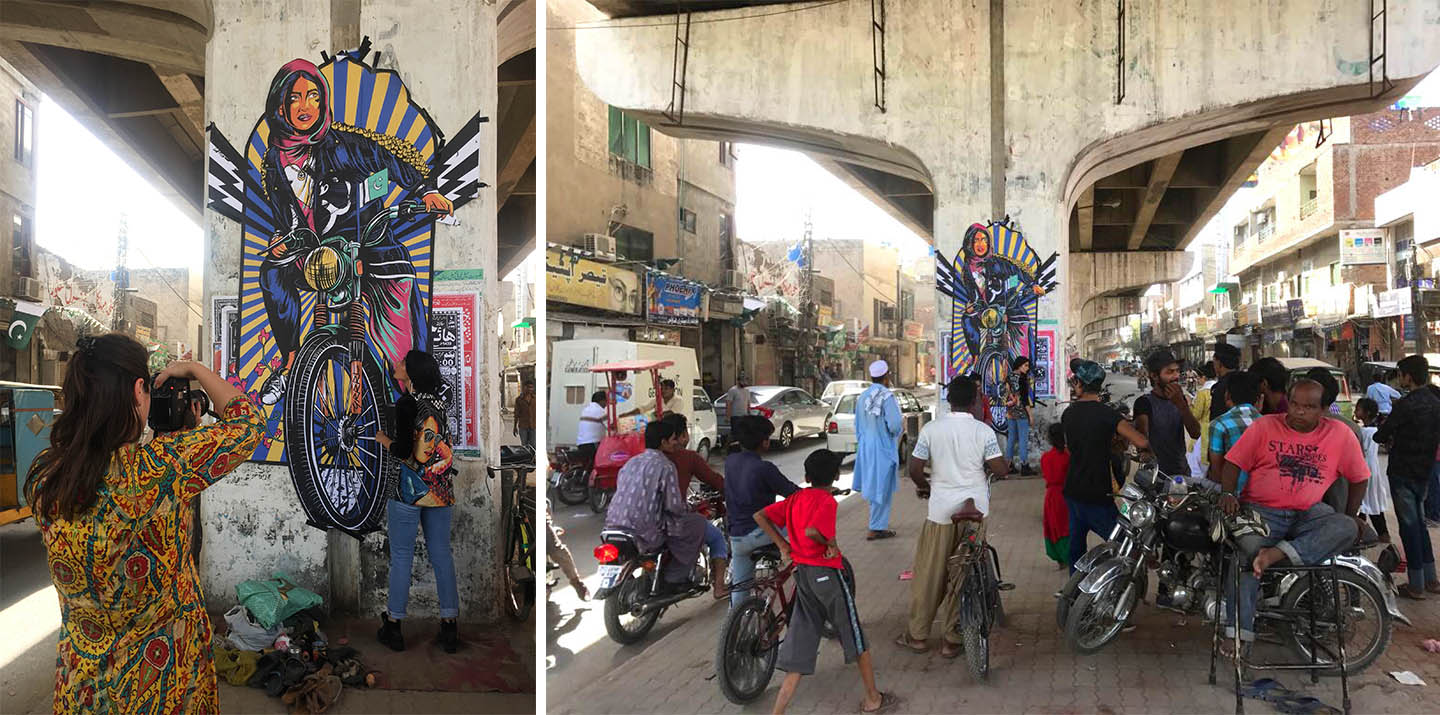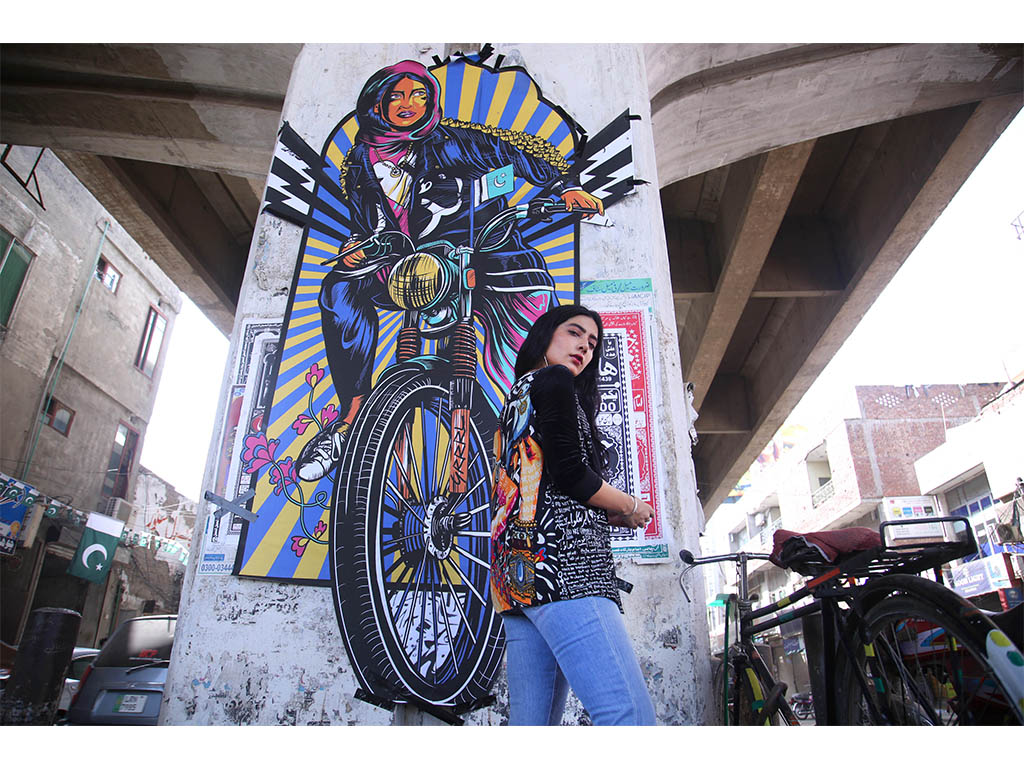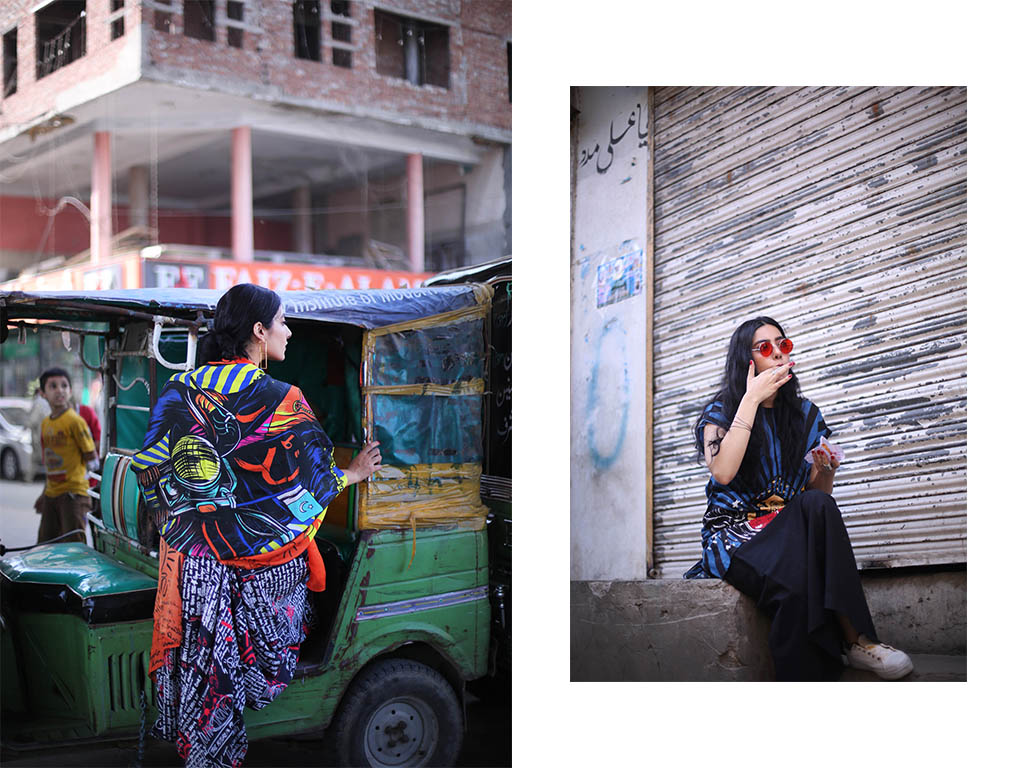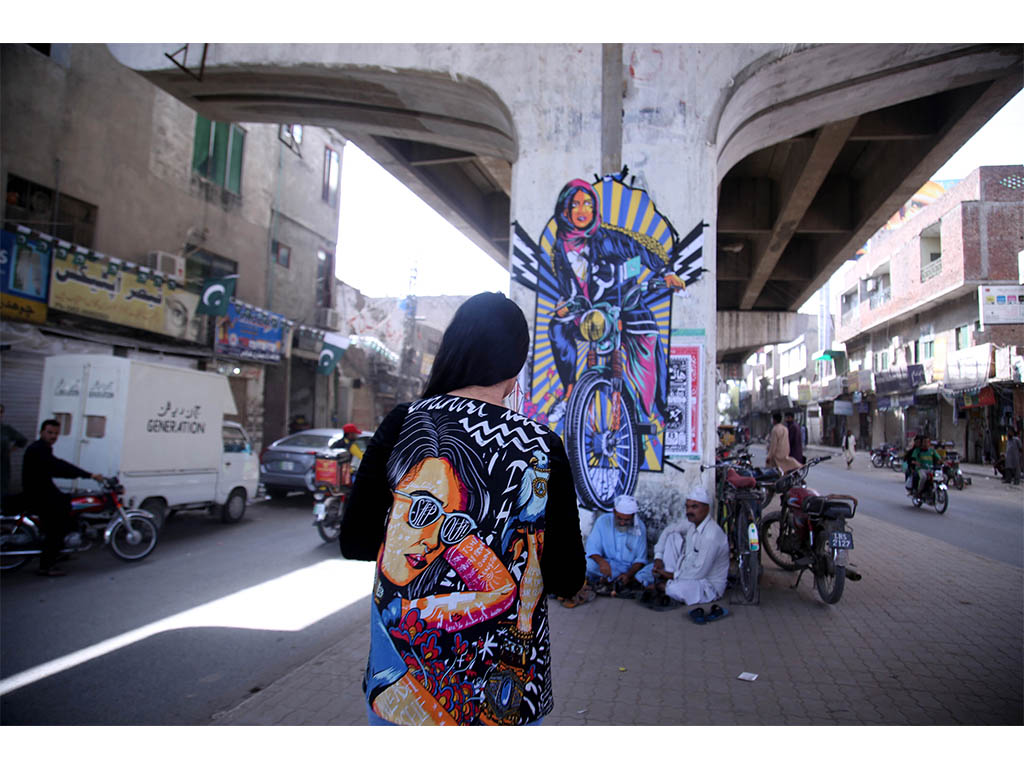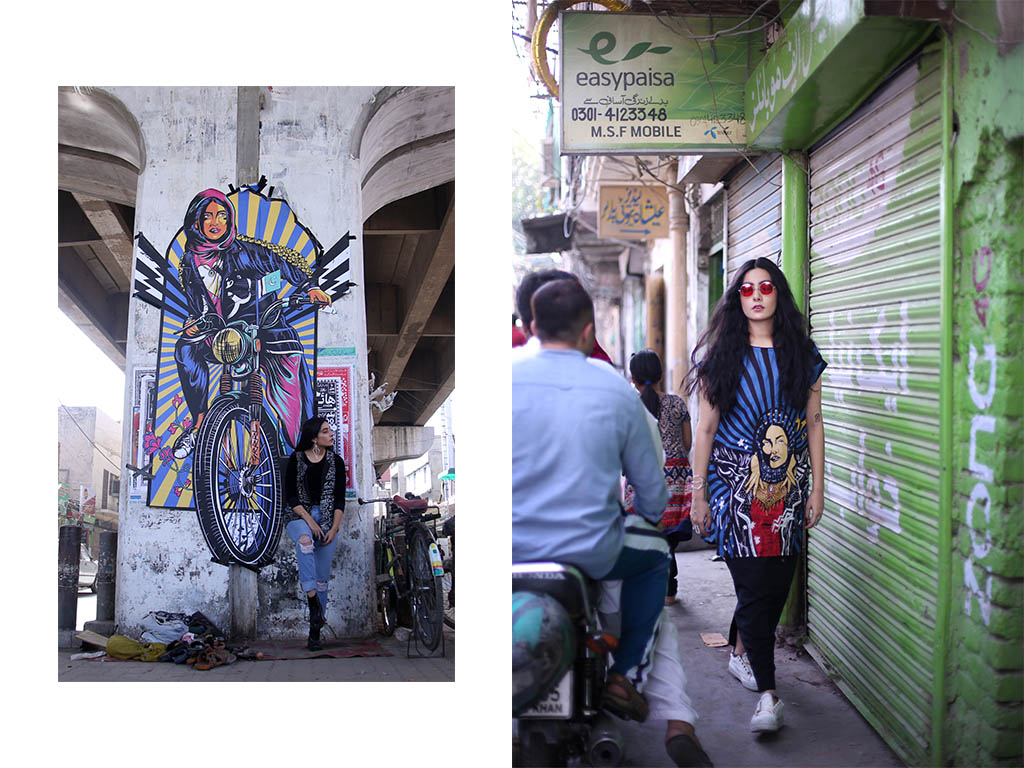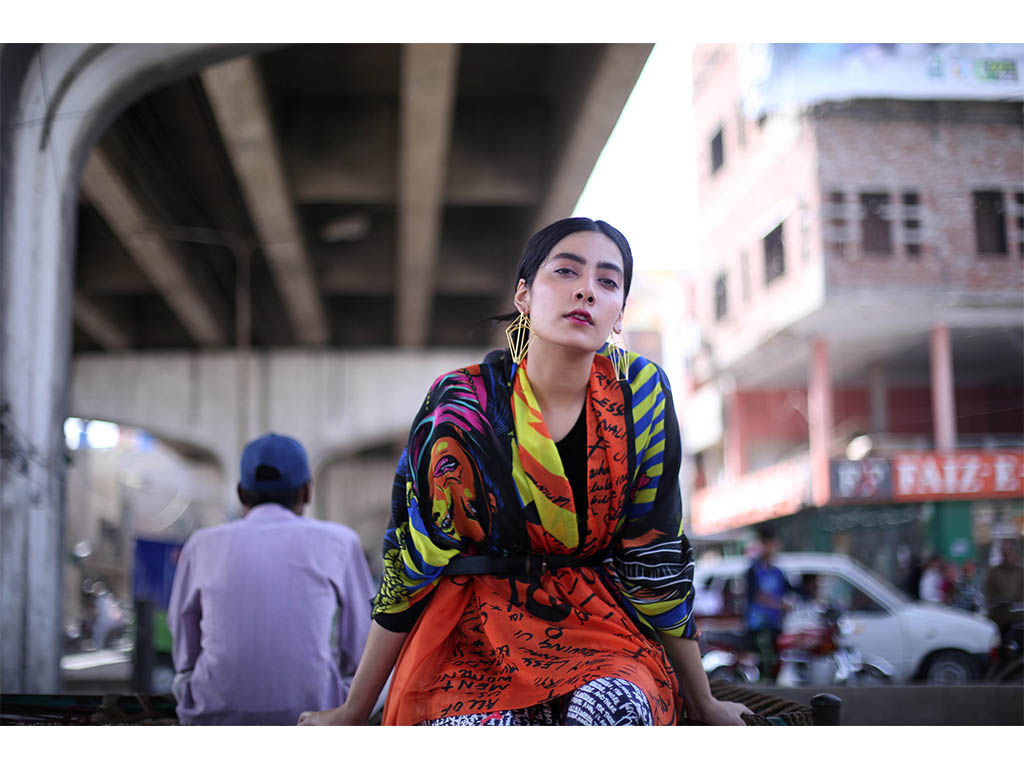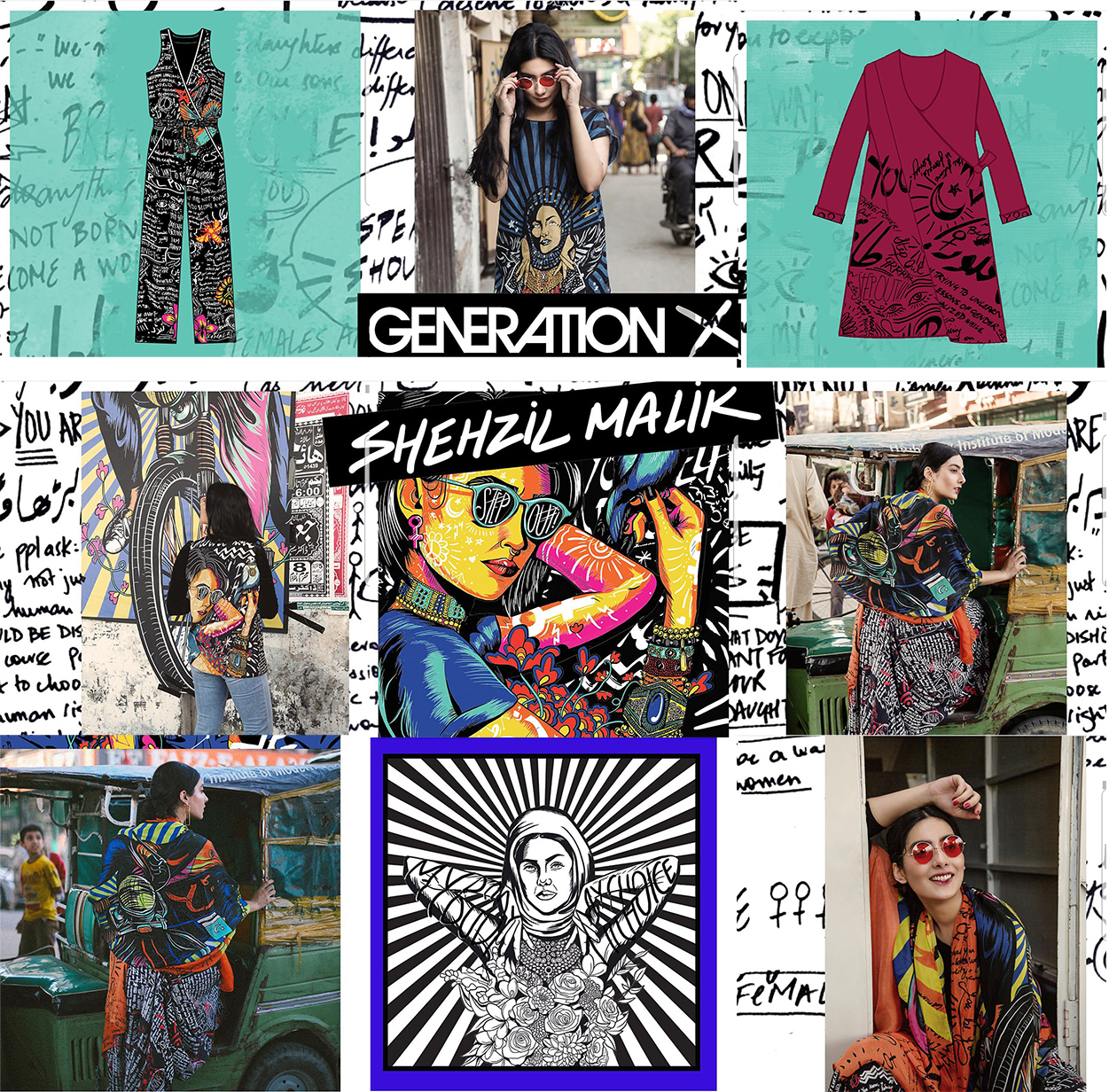This collaboration has been a coming-of-age of sorts for my work as an artist in Pakistan. As catharsis, I had drawn a comic about feeling scrutinized and harassed in public spaces– and unknowingly I illustrated an almost universal feeling of discomfort and fear women feel when stepping out. My comic landed me a place on a panel discussion on Women in Public Spaces at the British Council. These were artists, writers, entrepreneurs, and activists who felt strongly about women’s rights in Pakistan and were actively doing their part in changing the status quo. It was meeting Khadija Rahman (Creative Director, Generation) here that led to the idea of collaborating on a feminist fashion line.
I had started by drawing a girl with her insecurities and internal monologue written across her clothes- “Is my shirt not long enough?” But now I wanted to flip the script. I wanted the clothes to say, you are enough. You are you.
